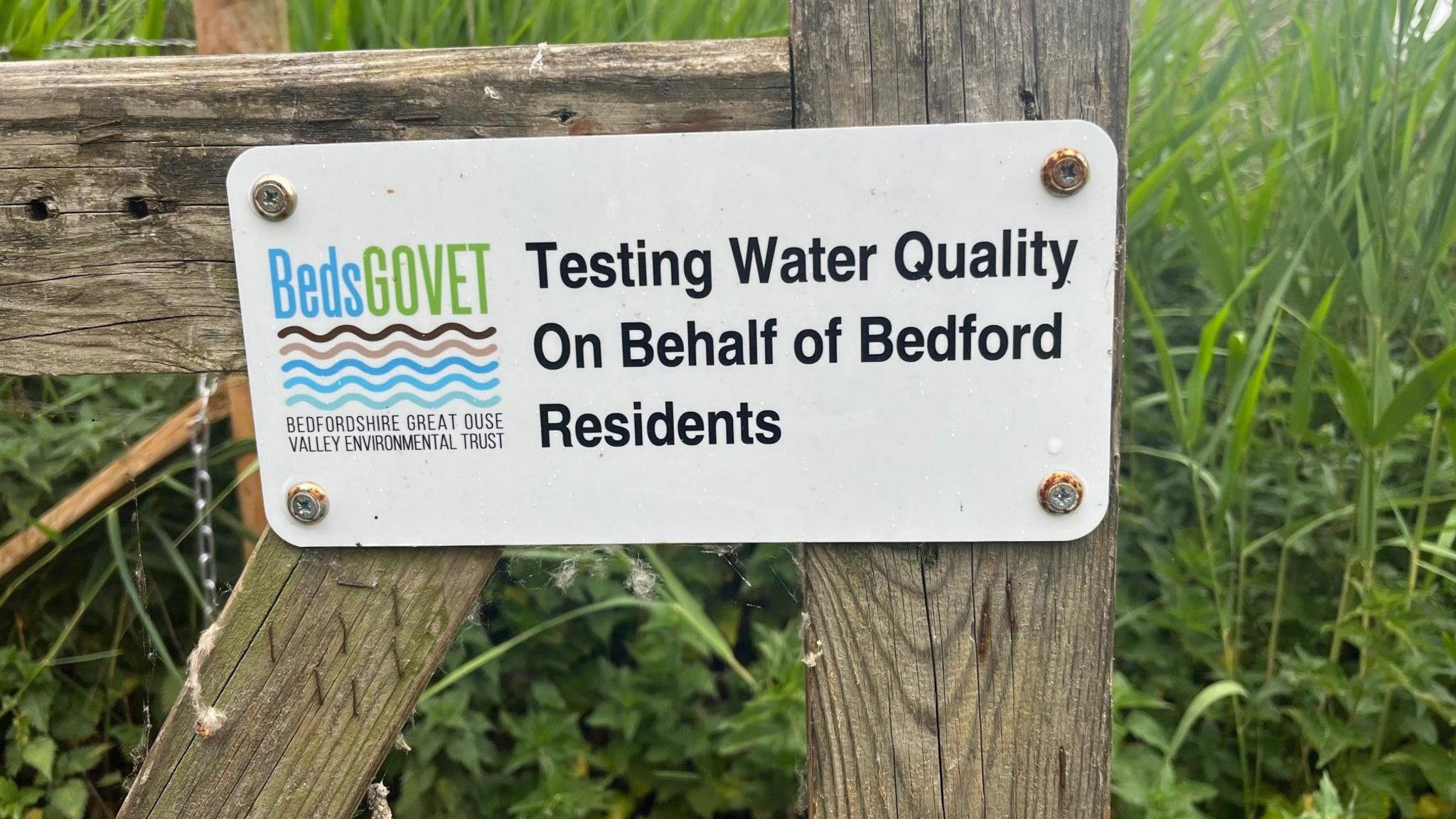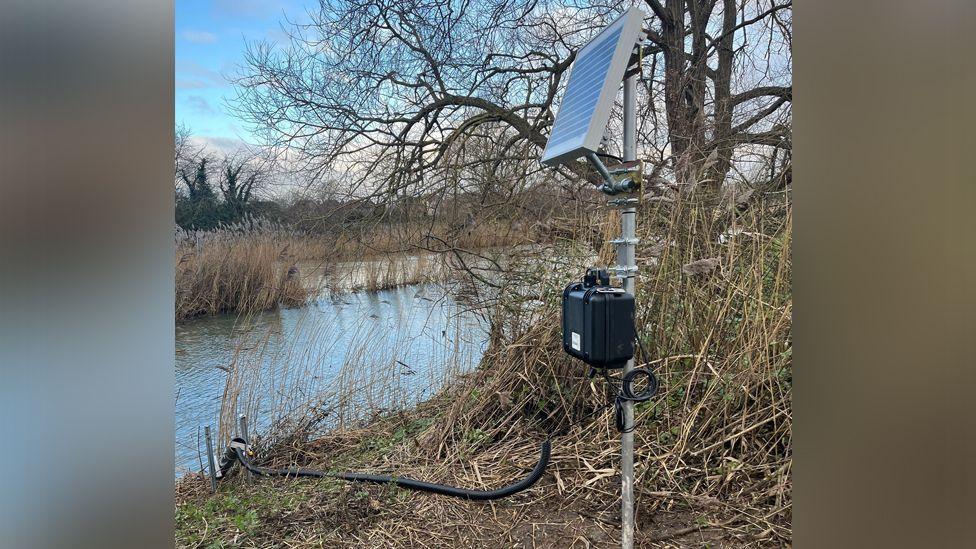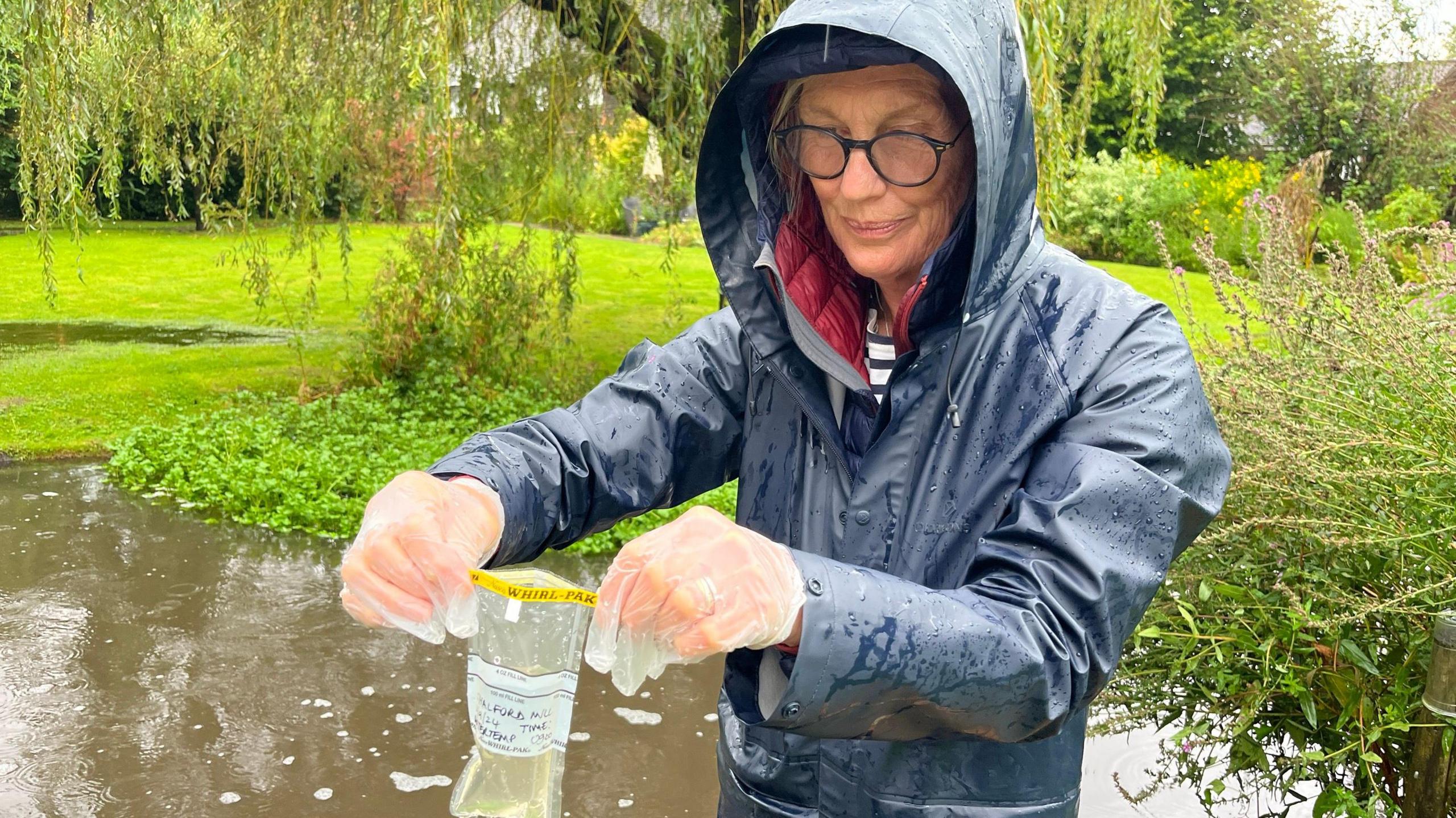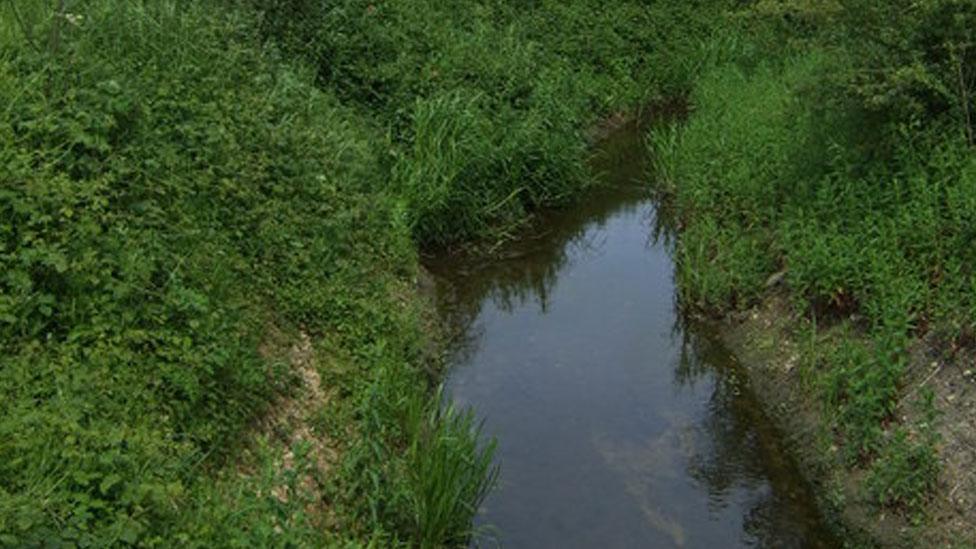'Don't swim in our beautiful river' E.coli warning

Alan Horn says the River Great Ouse, pictured during the River Festival, is "the jewel in Bedford's crown"
- Published
People are being warned to avoid popular swimming spots at a river after high levels of harmful E.coli were detected.
Half the sites tested along the Great Ouse through Bedfordshire were unsafe for bathing, according to new data from the Bedfordshire Great Ouse Valley Environmental Trust, external (BedsGOVET).
Its chairman Alan Horn said: "The upshot is that the river is in a very bad state… nitrate, phosphate and E.coli levels are unacceptable."
Four of the sites recorded especially high readings, with one sample topping 10,000 coliforms, more than 11 times above the safety limit.
The data was presented to Bedford Borough Council's Climate Change Committee, the Local Democracy Reporting Service said.
Monthly testing at 16 locations between Turvey and Great Barford found E. coli levels at half of the sites were at or above Ofwat's threshold for safe bathing.
E.Coli is bacteria that we all have in our intestines and most strains are harmless, but some strains can cause serious illness in humans.

The trust says "E. coli is dangerous: It can cause kidney failure and make people very ill"
Popular swimming spots at Felmersham, Great Barford and Bedford Embankment were also found to be of "poor quality".
"There hasn't been a single week throughout [our testing] when these locations have been fit for swimming," said Henry Lafferty, also from BedsGOVET.
Members heard that a worried parent asked them to test at Cardington Lock, just downstream from the centre of Bedford, where her son swims with friends.
Mr Horn said: "We found 4,000 coliforms... 900 is the safe swimming level.
"We're not able to to do anything apart from telling her 'please tell your son not to jump in the river [there]'."
Mr Horn told the BBC there was "no doubt" company Anglian Water was primarily to blame for the issue.
"The highest level of E.coli is just downstream from the main Bedford sewage outlet," he said.
"Anglian Water have admitted to spilling raw or partially treated sewage on dry days, which they're not allowed to do."

BedsGOVET takes water samples and analyses them at a lab to test for nitrates, phosphates and E.coli
Volunteers at the trust have spent the past three years collecting and analysing samples of river water.
The group said its priority was to expand testing and to work with the Environment Agency and Bedford Borough Council.
"The Ouse is called the jewel in Bedford's crown, and on a beautiful day it's pretty stunning, but we know it's dirty and we can't allow that," said Mr Horn.
'Highly unlikely'
Anglian Water said its data for January to July 2025 showed seven total spills from its centres at Bedford or Odell, none of which occurred during dry weather.
It added that E.coli could also come from "agricultural and urban runoff and local animal waste" and it was "highly unlikely" that the sewage plant was the only source of E.coli in the Great Ouse.
A spokesperson for the company said: "We share our customers' desire to make our waterways healthier.
"Although the areas identified are not currently designated bathing spots, we're working closely with BedsGOVET and other local groups to keep them up to date about our work in the area."
A Bedford Borough Council spokesperson said: "We are working with all the parties with a common aim of protecting the environment and also bring improvements where we all can."
Get in touch
Do you have a story suggestion for Beds, Herts & Bucks?
Follow Beds, Herts and Bucks news on BBC Sounds, Facebook, external, Instagram, external and X, external.
- Published18 September 2024

- Published20 May 2023

- Published28 June 2023
